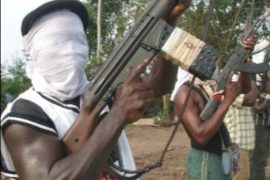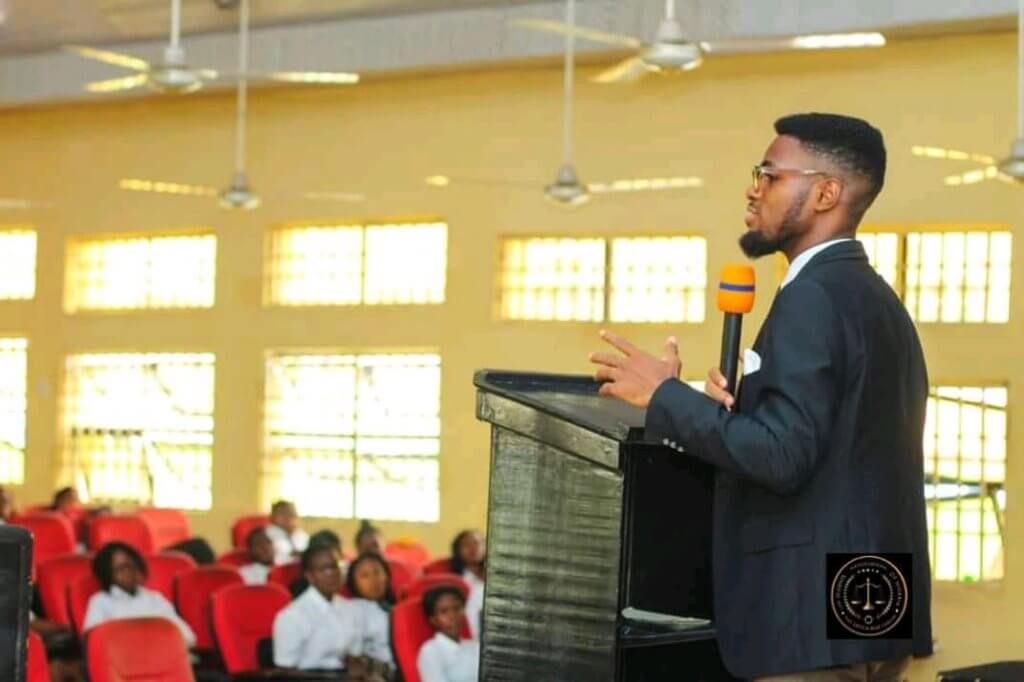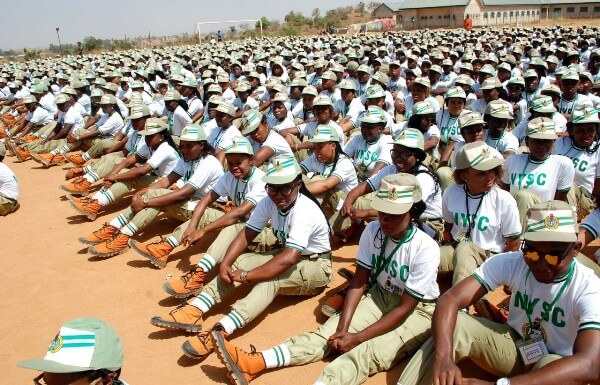SPECIAL REPORT: From Chibok to Dapchi…where is next? Insurgent activities continue in Nigeria despite government’s claims to have won the war

Concerns as gunmen attack students of Federal Polytechnic, Oko, in Anambra State.
By Gideon Arinze
On the 19th of February, the media were filled with reports of how Boko Haram insurgents attacked an all girls boarding school in Dapchi, a town in Northeastern Nigeria’s Yobe State, capturing 110 girls in the wake of the attack.
With the latest kidnap, it means that 110 girls have joined the remaining 112 girls who are still under the clutches of their captors despite negotiation moves.
The attack in Dapchi brings back memories of the devastating capture of over 270 girls in a Secondary School in Chibok. The 2014 incidence- because of how reprehensible it was- drew the attention of the international community, especially with the formation of the #BringBackOurGirls campaign.
High profile individuals such as wife of former US president, Michelle Obama, Noble prize winner and activist for female education, Malala Yousafzai were in the forefront of the campaign for the release of the girls.
In less than a month from now, it would be exactly 4 years since that unfortunate tragedy befell the country. While about 57 escaped as they were being taken away, more than 200 remained missing for more than two years.
The inability of the Goodluck Jonathan-led administration to secure the release of the remaining girls and get them reunited with their parents was a major determining factor of why he was defeated during the 2015 general election that pitted him against former military head of state, Mohammedu Buhari.
The government at that time was accused of neglecting the North East in terms of security and leaving the military underfunded and vulnerable to military ambush.
The re-emergence of Buhari into the political climate meant a lot to Nigerians who had become fed up with the spiralling attacks by terrorists. They trusted him to tackle insecurity in the country, especially activities of Boko Haram which have claimed many lives.
In 2014, Nigeria ranked third of all countries in the world in terms of impact by terrorism, following only Iraq and Afghanistan. The country accounted for 23% of all deaths caused by terrorism worldwide.
The increase was the largest year-on-year increase in terrorist deaths for any country in history. An Amnesty International estimate showed that Boko Haram had killed more than 17,000 people in total.
During his campaign in 2015, Buhari made a promise to eradicate insurgency by the end of the year. In his first speech as President, he reassured Nigerians of his commitment to tackle Boko Haram, whom he described as a “mindless and godless” group who are as far away from Islam as one can think.
He also said that Boko Haram could not be said to have been defeated without rescuing the more than 200 Chibok girls whose capture in April sparked a global campaign in a bid to rescue them from the hands of their captors.
“This government will do all it can to rescue them alive” he said.
When Buhari assumed office in 2015, as was expected, he ordered the relocation of the military command and control centre from Abuja to the militant heartland of Borno. He also paid several visits to neighboring countries that had been affected by acts of insurgency, promising them that his administration would take the lead in defeating Boko Haram where the previous administration had failed.
Two years after the capture in Chibok, a deal between the Federal Government and the terrorist group, brokered by the International Committee of the Red Cross however resulted in the release of 21 out of the whole girls who were kidnapped by the group in 2016.
In 2017, another deal between the Government and the sect secured the release of another batch of 82 girls. With the several negotiations between the Federal government and members of the sect, it was believed that the remaining girls will be rescued and adequate security ensured.
The emergence of Buhari as president of the country reduced the frequency of attacks carried out by the deadly extremist group. At least, the group no longer controlled large swathes of territories in Borno. Reports of constant attacks and killings especially at motor parks and in worship centres have reduced as well.
But Boko Haram yet remain active and deadly in their activities, more so, with the increasing number of young female suicide bombers who have been used by the group to carry out series of attacks in public places. Certain remote towns and villages yet remain vulnerable to raids by the insurgents.
A report by the United Nation’ children agency, UNICEF in 2017 shows that over 83 children have been used by the group as human bombs to carry out bomb attacks in North Eastern Nigeria which is four times higher than it was for the entirety of 2016.
An Amnesty International report for instance revealed that no fewer than 375 civilians were been killed between January and November 2017 in a total of 150 attacks carried out by members of the deadly Boko Haram sect. It reportedly launched 90 armed assaults and 59 suicide attacks according to a research by BBC monitoring.
The report by Amnesty International also showed that the deadliest in a total of 55 attacks in northeastern Nigeria as at 2017 was in August, when the militant group killed 100 people, followed by November, when the insurgent group killed 76 people.
In February, 2016, a total of 422 deaths in 36 attacks were recorded. In one of its attacks on two villages in Northeastern Nigeria, over 30 people were reportedly killed. In another attack, two female suicide bombers killed 58 people at a Nigerian refugee camp for villagers fleeing terrorist attacks.
The kidnap in Dapchi, according to a Reuters report, is one of the largest since the deadly sect abducted more than 270 school girls from the Northeastern town of Chibok.
The news came after reports released by the Nigerian military suggested that it had completely won the war against insurgency. At a special service to commemorate the 2018 Armed Forces Remembrance Day, the Chief of Army staff, Colonel Tukur Buratai said that the military had recorded successes in the intensified offensives, routed and defeated the insurgents.
Statements released by the #BringBackOurGirls movement on her website following the abduction of the girls from Dapchi in Yobe state clearly showed a dereliction of duty on the part of the Federal Government and the Military in their “fight against insurgency”
Part of the statement said that the terrorists carried out the attack for hours unchallenged by forces of the Federal Government, a development which leaves disturbing questions on the lips of the citizenry as to what happened to the early warning signal system which was established as part of security architecture for areas like Dapchi which have become hotbeds of attacks by the insurgents as well as the safe school initiative which was signed on by the Federal Government to which it committed $10 million alongside other donations by other donors including the international community in 2014.
Since its emergence in 2009 in the northeast, over 20,000 people have been killed and at least 1.7 million displaced. The violence has also spread to neighboring countries, leading to the closure of more than 2,000 schools in Nigeria, Chad, Niger and Cameroon.
An estimated one million children have also been forced out of school as a result of violent attacks on schools by the insurgent group which perceives Western Education as a forbidden.
Camps for internally displaced persons- which are supposed to be safe havens- have become unsafe as there have been reports of several attacks carried out in such locations, forcing many to seek protection in school and religious worship centres.
It is shocking that while the entire citizenry watched and waited for the return of the remaining 112 Chibok girls ahead of the 4-years anniversary of their abduction, the country is yet again faced with an additional calamity.
The latest attack shows that the present administration has not yet won the war against insurgency and that a lot more needed to be done by the military in their bid to stem the tide of insurgency in the country.




